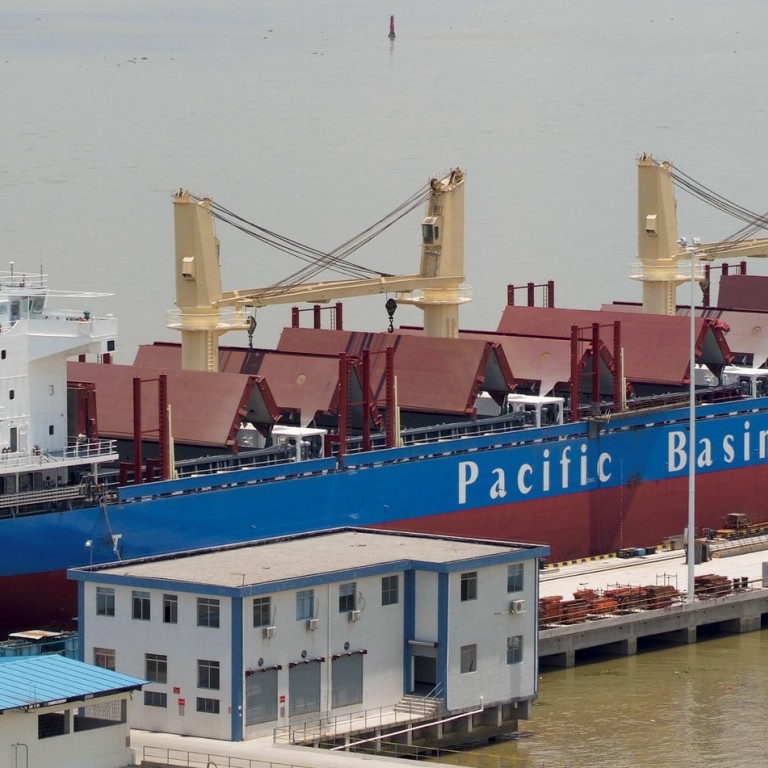
Pacific Basin sees brighter prospects in second half of 2014
After bouncing back into the black last year, the shipper expects huge Chinese demand for grains and building materials to buoy its prospects
The mainland's seemingly insatiable appetite for grains, oilseeds and construction supplies should see demand in the dry bulk shipping sector stay strong despite the still uncertain outlook for the global economy.
Food imports are being fuelled by the twin engines of rising household incomes and the vulnerability the country's food supply chain faces from extreme weather hitting its major crops.
That is all good news for Pacific Basin Shipping, the world's largest operator of handysize dry bulk vessels, which last week posted a huge turnaround in earnings. From a loss of US$158.5 million in 2012, the company made a net profit of US$1.5 million last year on the back of a cyclical upswing in the sector which it sees getting even stronger this year.
Pacific Basin benefits as increasing affluence on the mainland, the world's second-biggest economy, sees consumers buy increasingly large amounts of meat and homes for their families, which use vast raw material inputs.
Nearly two-thirds of the cargoes shipped by Pacific Basin are construction materials, such as logs and cement, and agricultural goods, such as grains and oilseeds.
Given steady growth rates even in a slowing economy, the pace of those agricultural and construction imports is not expected to slow appreciably.
Pacific Basin's chief executive Henrik Berglund said shipment of these products normally peaked in the second half of the year, and the outlook for business was more positive this year.
China is now a colossus in the global market for soya beans, used extensively for food and crushed for edible oil, and as animal feed.
The United States Department of Agriculture projected total soya bean imports by China in the 2013-14 season at 68.5 million tonnes. This was expected to surge to 72.8 million tonnes in 2014-15, accounting for nearly two-thirds of world soya bean trade.
Wheat imports shot up to 10 million tonnes last year as China eclipsed Egypt as the world's biggest buyer of the grain. Excessive rains hammered China's wheat crop, severely crimping production.
Total imports by China of US wheat as of February 20 stood at 4.08 million tonnes, against imports of only 468,400 tonnes a year earlier, the US agriculture department said.
Analysts said there was no guarantee China's wheat production would be normal this year given erratic weather conditions.
Pacific Basin also drew some cheer from the large-scale shipment of construction products.
New Zealand's Ministry for Primary Industries revised higher its forest product exports for 2014-15 to NZ$5.3 billion (HK$34.8 billion) from the original forecast of NZ$4.4 billion. China is the leading market for the country's log products.
With increased business in mind, Pacific Basin bought 43 vessels last year and chartered 18 on long-term contracts.
The company said it had already covered 5 per cent of all contracted handysize revenue days this year at a rate of US$10,090, up 6 per cent from last year's average.
